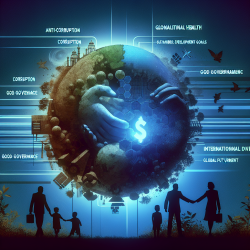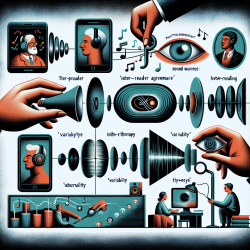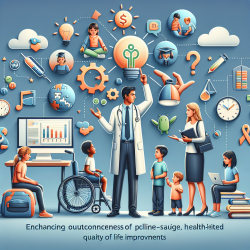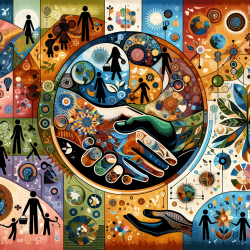The Unseen Impact of Corruption on Global Health and Its Implications for Children's Well-being
Corruption in global health is akin to a disease, one that infiltrates and devastates the very systems designed to protect and enhance human health. According to Mackey et al. (2016), corruption in the health sector is multifaceted and complex, posing significant challenges to global health advancements. This blog explores the insights from the research article "The disease of corruption: views on how to fight corruption to advance 21st century global health goals" and discusses how practitioners can leverage these findings to improve outcomes for children worldwide.
Understanding the Scope of Health-Related Corruption
Health-related corruption manifests in various forms, from petty corruption such as absenteeism of healthcare workers to grand corruption involving high-level government officials. The financial implications are staggering, with billions of dollars lost annually. This corruption not only limits economic and human development but also endangers patient health, creating a dual burden that is particularly perilous for vulnerable populations, including children.
Key Strategies to Combat Health Corruption
The research identifies several priority areas that require urgent attention to combat health-related corruption:
- Better Data: The true scope of health corruption is largely unknown. Enhanced data collection and reporting are essential to uncover and address these issues effectively.
- Transparency: Transparency in financial systems, healthcare transactions, and procurement processes is crucial in curbing corruption.
- Multi-Stakeholder Partnerships: Collaboration among governments, private sectors, and civil society can foster transparency and accountability, creating a unified front against corruption.
- Governance: Good governance at national and international levels is fundamental to anti-corruption efforts, aligning with the United Nations' Sustainable Development Goals (SDGs).
Implications for Practitioners
For practitioners working with children, understanding and addressing the impacts of health-related corruption is crucial. By advocating for transparency and better governance, practitioners can help ensure that resources intended for children's health and development are used effectively and reach those in need. Furthermore, engaging in multi-stakeholder partnerships can amplify efforts to combat corruption, ultimately leading to improved health outcomes for children.
Encouraging Further Research
While this research provides a roadmap for addressing health-related corruption, there is a need for ongoing investigation into the specific impacts on children's health. Practitioners are encouraged to contribute to this body of knowledge by conducting research and sharing findings that highlight the unique challenges and solutions in their contexts.
To read the original research paper, please follow this link: The disease of corruption: views on how to fight corruption to advance 21st century global health goals.










